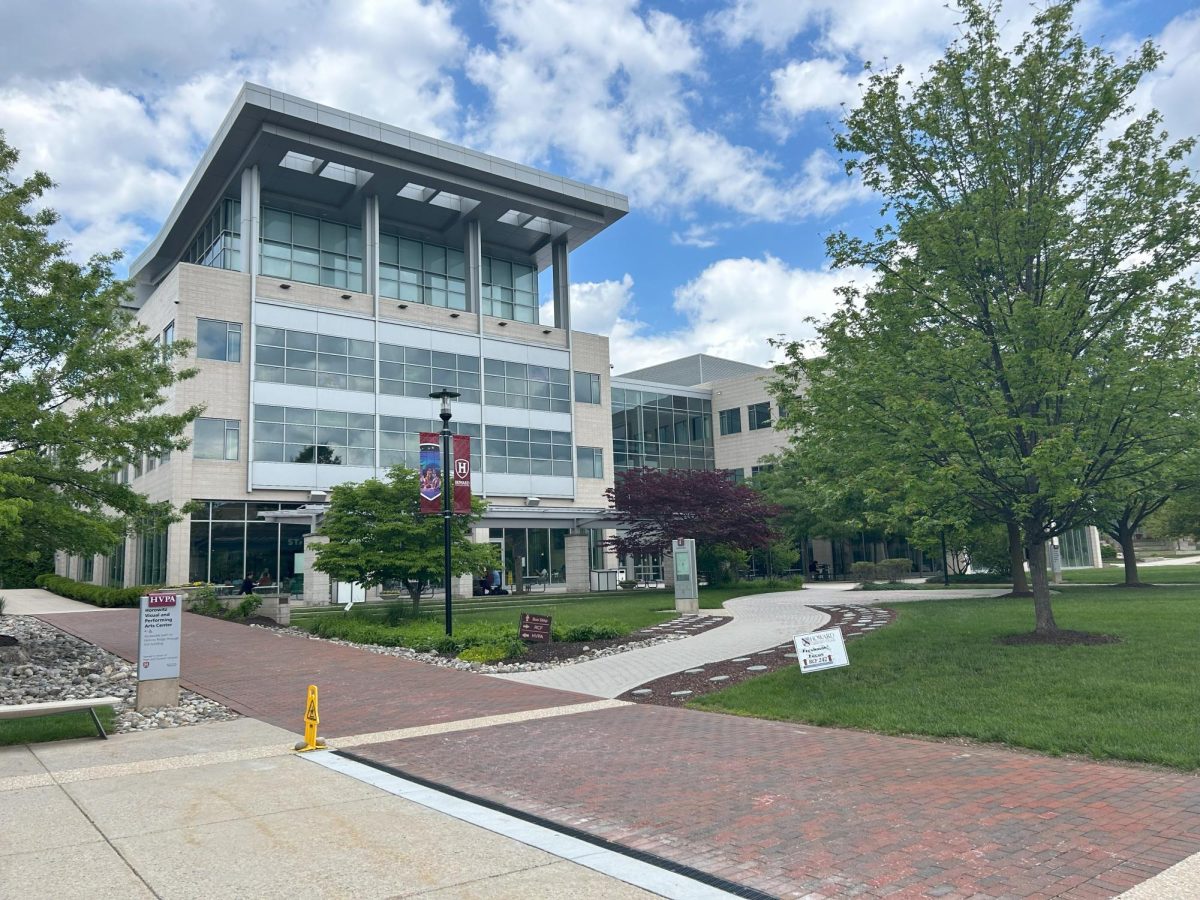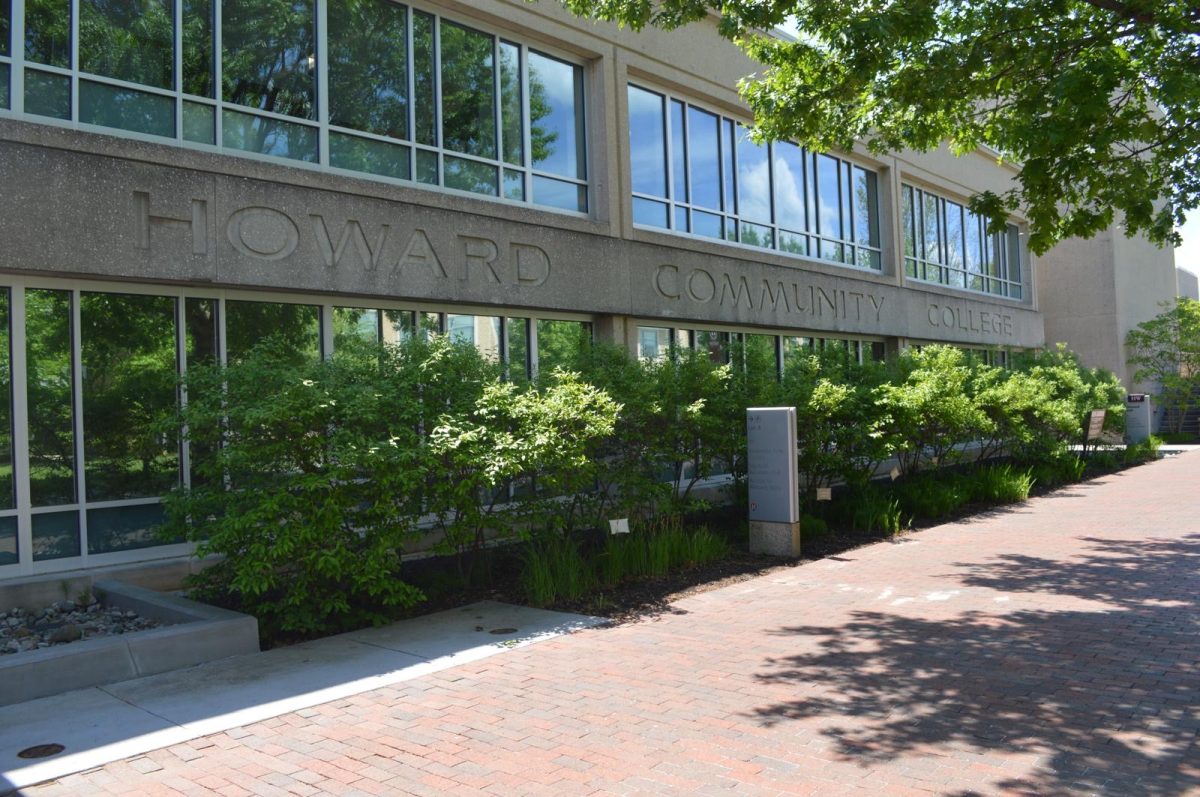Historic Third Supreme Court Nomination Explained
October 22, 2020
With the 2020 election approaching, there seems to be a never-ending barrage of political news. With so much content clogging our newsfeeds, trying to understand these issues can seem daunting. One such saga is the recent death of Supreme Court Justice Ruth Bader Ginsburg and the subsequent nomination process of Amy Coney Barrett.
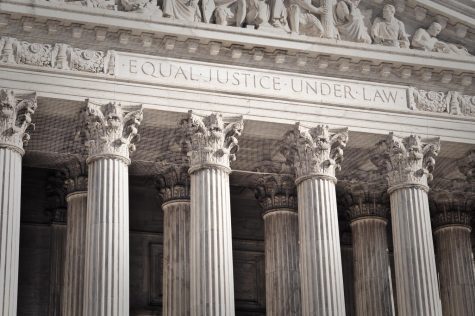
To fully understand the significance and nuances of Barrett’s confirmation hearing, we must briefly review both the circumstances of the nomination and the political climate that colors this entire affair. As the media exacerbates political polarization, the middle of the political spectrum seems to be disappearing. Bipartisan issues are almost nonexistent in the upper echelons of government, and the political parties themselves carry incredible weight so that members of Congress are often forced to vote in the interest of their party rather than the interest of their constituents.
There is growing hostility between conservatives and liberals across America as a whole and across Senate Majority Leader Mitch McConnell’s (R) chamber; the upcoming election brings tensions to an all-time high. Though the results may drastically alter the political power dynamic, currently the Republican Party has an undeniable advantage in this chess match. The Democrats’ only foothold is in the House, whereas Republicans dominate the executive branch, the judicial branch, and the Senate. Because the House of Representatives isn’t involved with Supreme Court nominations, any nominee had President Trump put forward was basically guaranteed a seat on the Supreme Court.
Senate Democrats argued that it was unjust and hypocritical to even hold a confirmation in current circumstances. When conservative Justice Antonin Scalia passed away in February of 2016, Republican Senators refused to hold a hearing for President Obama’s nominee, causing explosive pushback. At the time, they justified this rejection of norms by claiming it was immoral to confirm a new Justice during an election year. Yet, as the 2020 election approaches, Senate Republicans have crossed the line they drew in the sand, opting to push President Trump’s nominee through the confirmation process mere weeks before a national election.
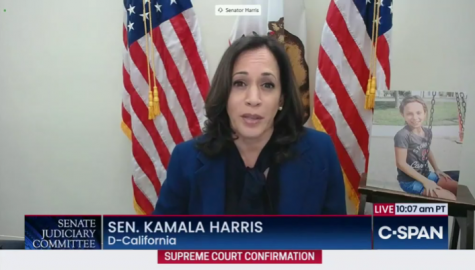
Several Democratic senators, including Vice-Presidential nominee Kamala Harris, argued that holding in-person confirmation hearings while virtually all other Senate activities had been ceased was both dangerous and insulting– Barrett’s confirmation should not be prioritized over the passage of COVID relief bills. But the reason for Barrett’s expedited hearing was not a secret.
On November 10th, the Supreme Court is scheduled to hear a case that would put the Affordable Care Act in jeopardy. If the Republicans can get Amy Coney Barrett confirmed, the Supreme Court will be more conservative than it has been in the past seventy years, according to the Washington Post. Under the new Supreme Court makeup, the November 10th hearing would most likely overturn the Affordable Care Act, fulfilling a Trump campaign promise and a conservative talking point. Senator Dick Durbin (D) remarked to Barrett, “That is the cloud… over your nomination.”
It is ironic that after so much infighting and heavy conjecture centered around Barrett’s confirmation hearing, the event itself was anticlimactic. With a solid Republican majority, there was no question as to how the vote would advance.
Barrett is undeniably qualified for the position, graduating with high honors from Notre Dame Law School, acting as clerk for the late Justice Scalia, working extensively as a law professor, and serving on the Seventh Circuit Court of Appeals.
At the hearing, Barrett appeared composed and articulate, and proceedings were generally civil. What concerned numerous members of the Senate Judiciary Committee was her originalist and textualist philosophy. Senator Chris Coons (D) speculated that by her approach, modern understandings of “liberty, privacy, and equality under the law could in fact be rolled back to 19th or even 18th-century understandings, in a way unrecognizable to most Americans.”
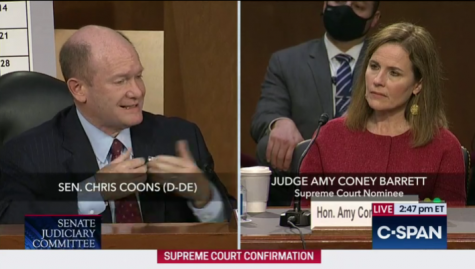
Senator Coons then went on to question Barrett on whether she’d want to overturn the watershed Supreme Court case Griswold v. Connecticut (which broadened what fell under the right to privacy), and what followed was a non-answer. Rather than stating an opinion, she simply listed why it was unlikely that the case would even come before the Supreme Court.
Circumventing questions became a trend in Judge Barrett’s hearing. With questions Barrett felt involved controversial topics, she would deem it imprudent as a non-political entity to make any statement on the matter.
This was very revealing as to what she deemed debatable. In Senator Harris’s line of questioning, Barrett agreed that COVID-19 is infectious and that cigarettes can cause cancer, but when asked if climate change is a valid threat, Barrett responded, “I will not express a view,” saying that the issue was too controversial.
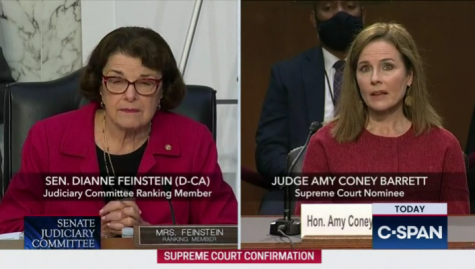
Similar results occurred when Senator Feinstein (D) questioned whether the president constitutionally has any authority to unilaterally delay a general election– Barrett’s response was evasive, “If that question came before me, I would have to hear arguments.” An almost identical answer was given when Senator Leahy (D) asked if Barrett believed a president had a right to pardon himself of a crime.
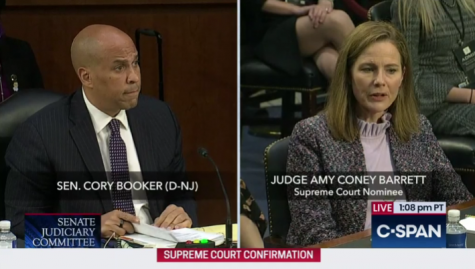
One incident which caused significant media uproar followed Senator Cory Booker’s (D) question, “Do you believe that every president should make a commitment, unequivocally and resolutely, to the peaceful, transfer of power?” After a tense pause, Barrett replied, “Well, Senator, that seems to me to be pulling me in a little bit into this question of whether the president has said that he would not peacefully leave office, and so, to the extent that this is a political controversy right now, as a judge I want to stay out of it.”
It is not odd for a Supreme Court nominee to do some verbal gymnastics, particularly on hot-button issues such as abortion rights, but the sheer number of evasive responses given by Barrett over the course of the hearings has seemed particularly concerning to many Americans.
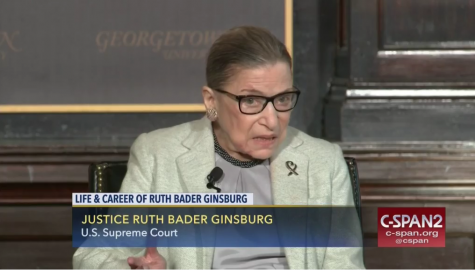
As Capitol Hill prepares for the official confirmation vote taking place on October 26th, many people are contemplating how the late Justice Ginsburg would have felt about this chain of events. According to her close family, her dying wish was to not be replaced in the Supreme Court until the next president takes office. As the vote draws near, it’s not likely her wish will be granted.
It seems clear that Ginsburg would not enjoy the political circus surrounding her vacant seat, but her famous unlikely friendship with Justice Antonin Scalia exemplifies how strongly Ginsburg valued respect and diversity of thought.
Though Amy Coney Barrett and Ruth Bader Ginsburg appear ideologically opposed, Barrett’s qualifications, rapport with Justice Scalia, and success as a woman in a male-dominated field would most likely have earned Ginsburg’s respect. Americans who feel betrayed and hurt by the circumstances of Barrett’s impending confirmation should focus on calling out their Congress members and voting with purpose come November. Remember this: the power of government comes from the people.



